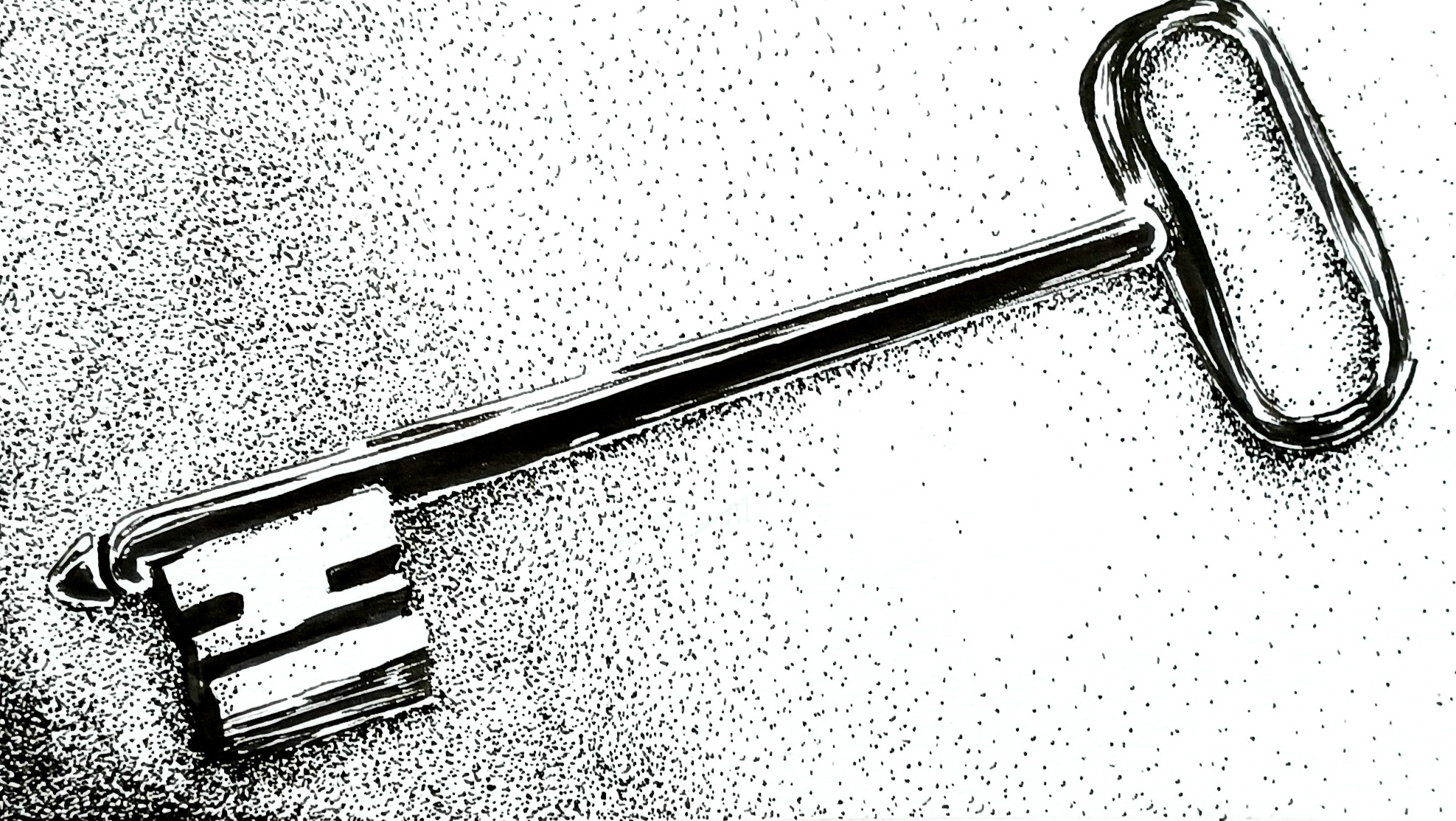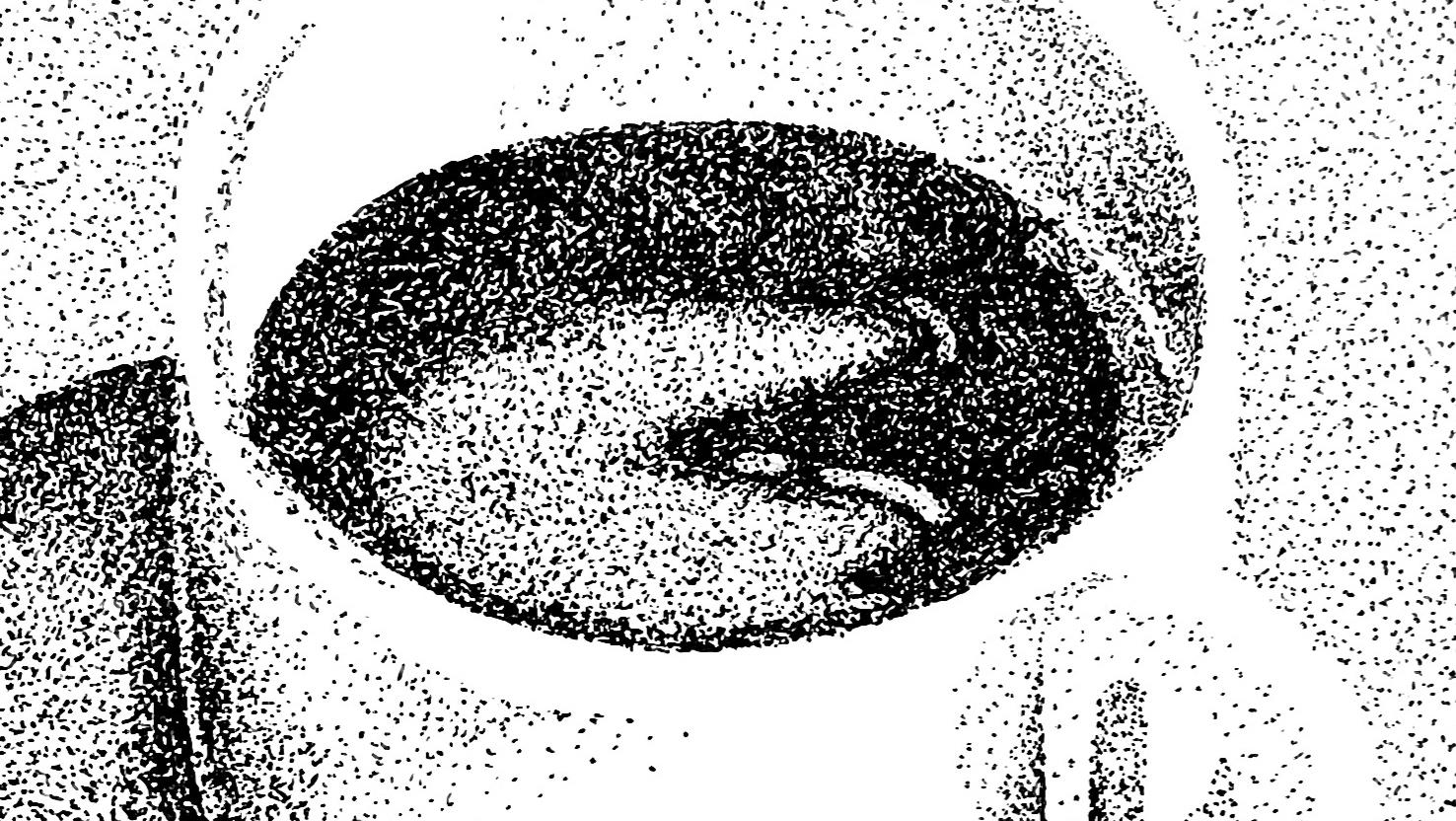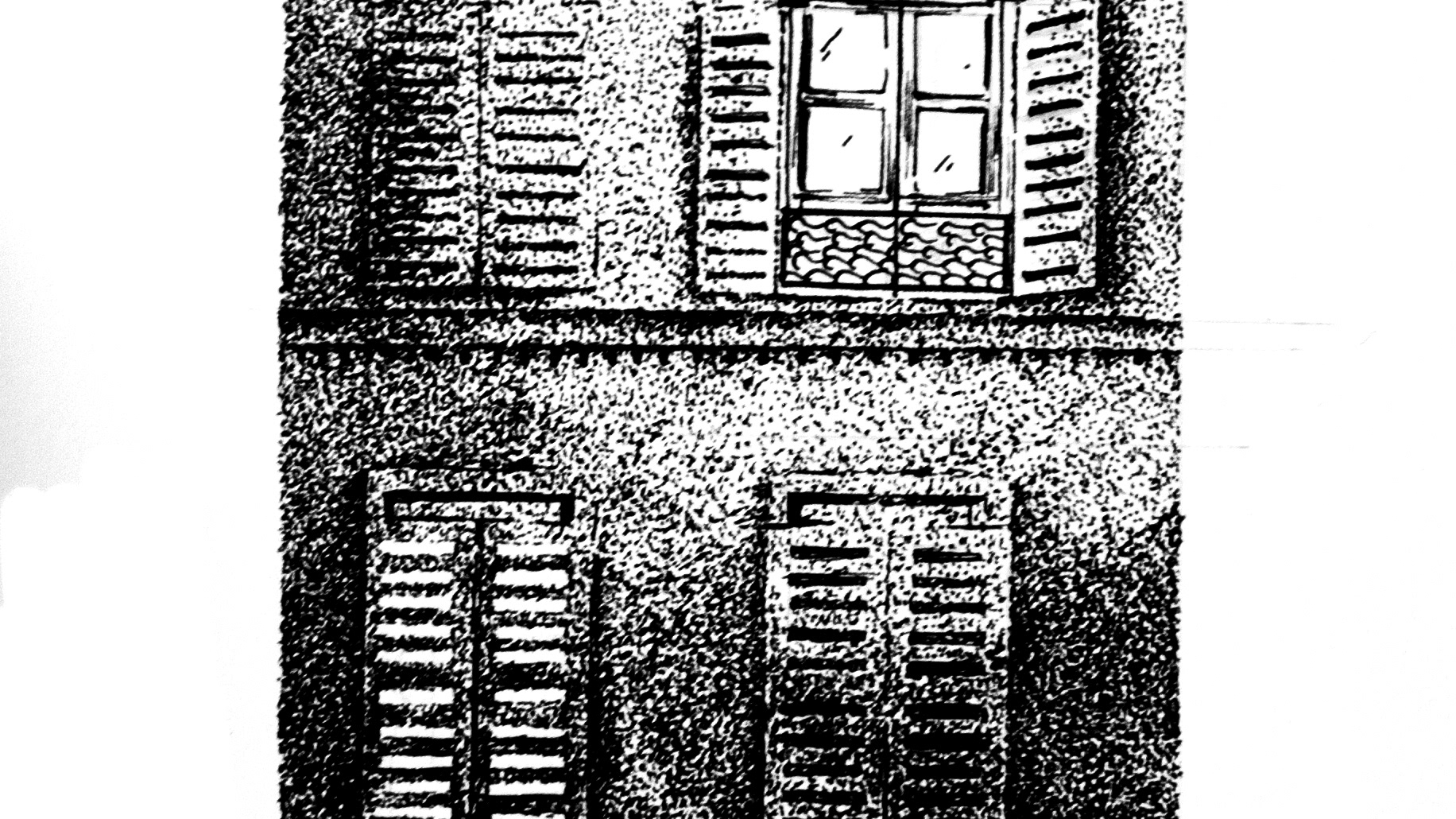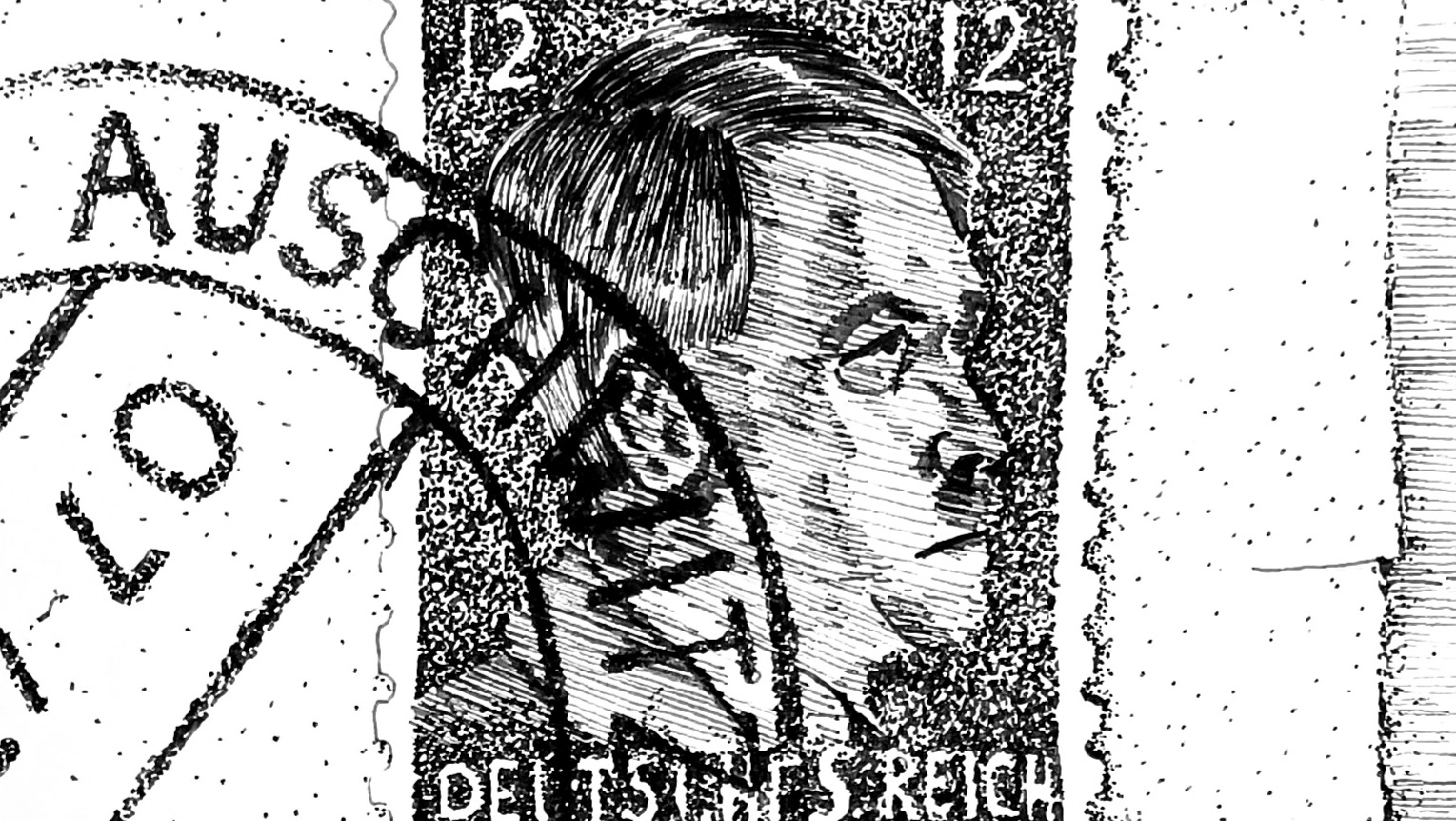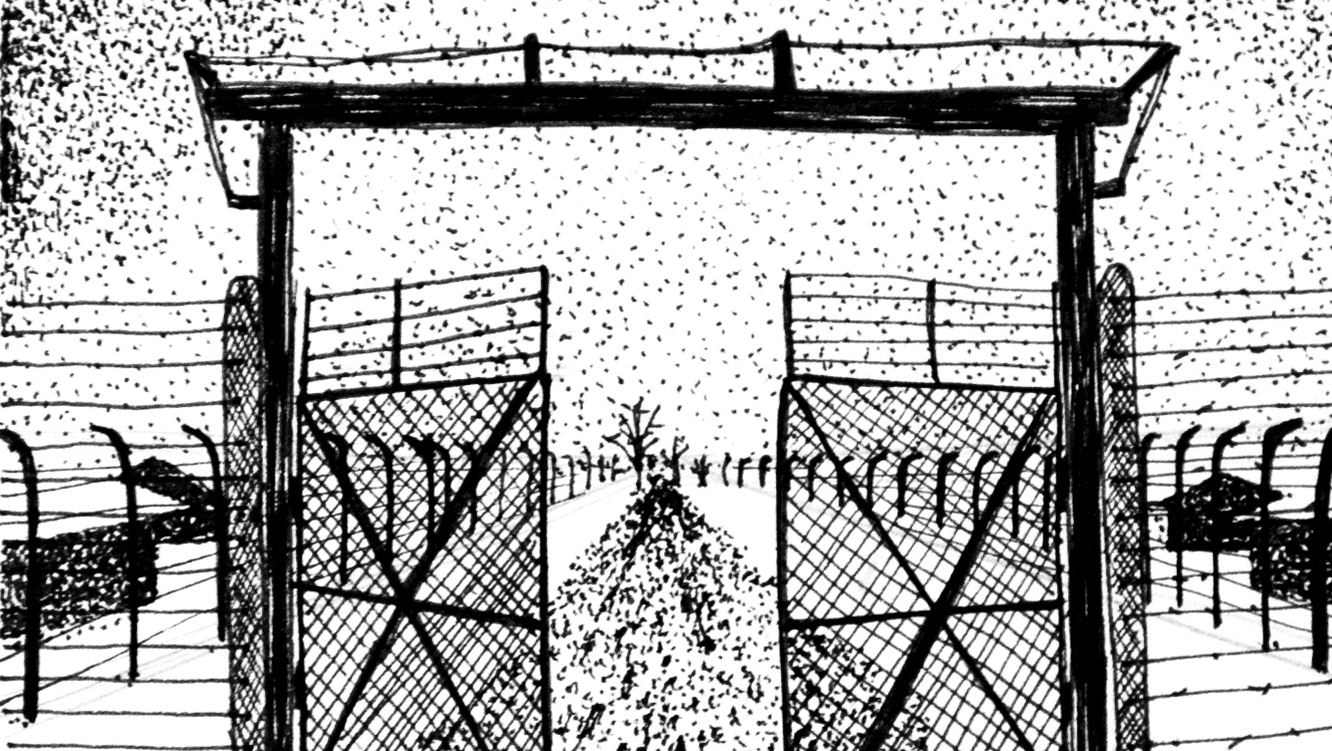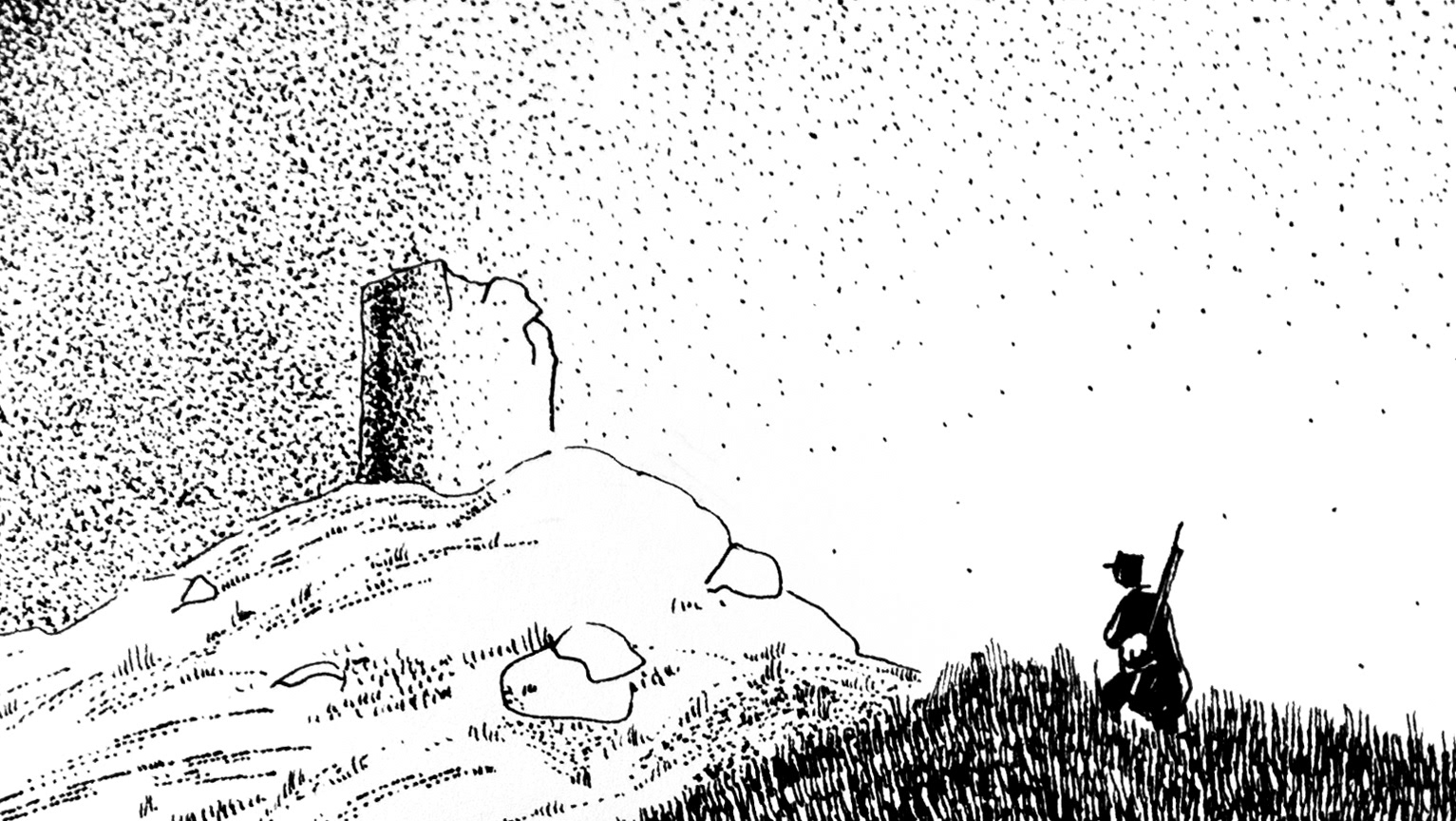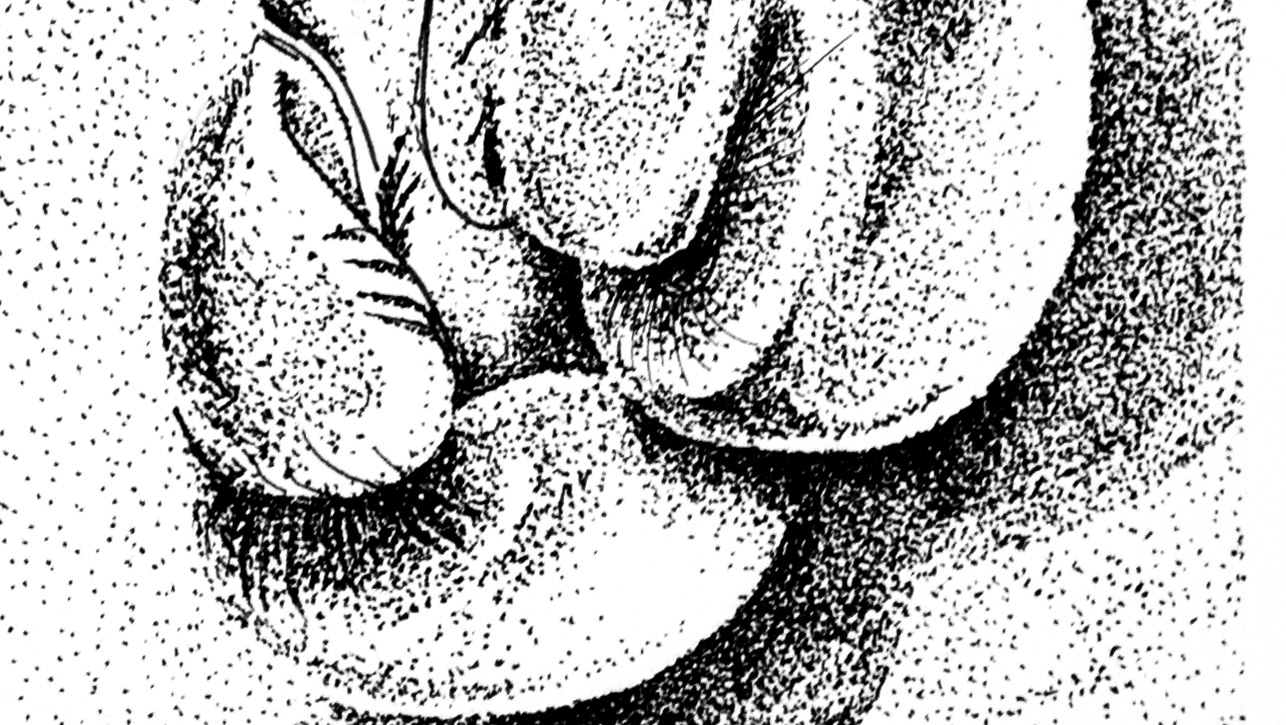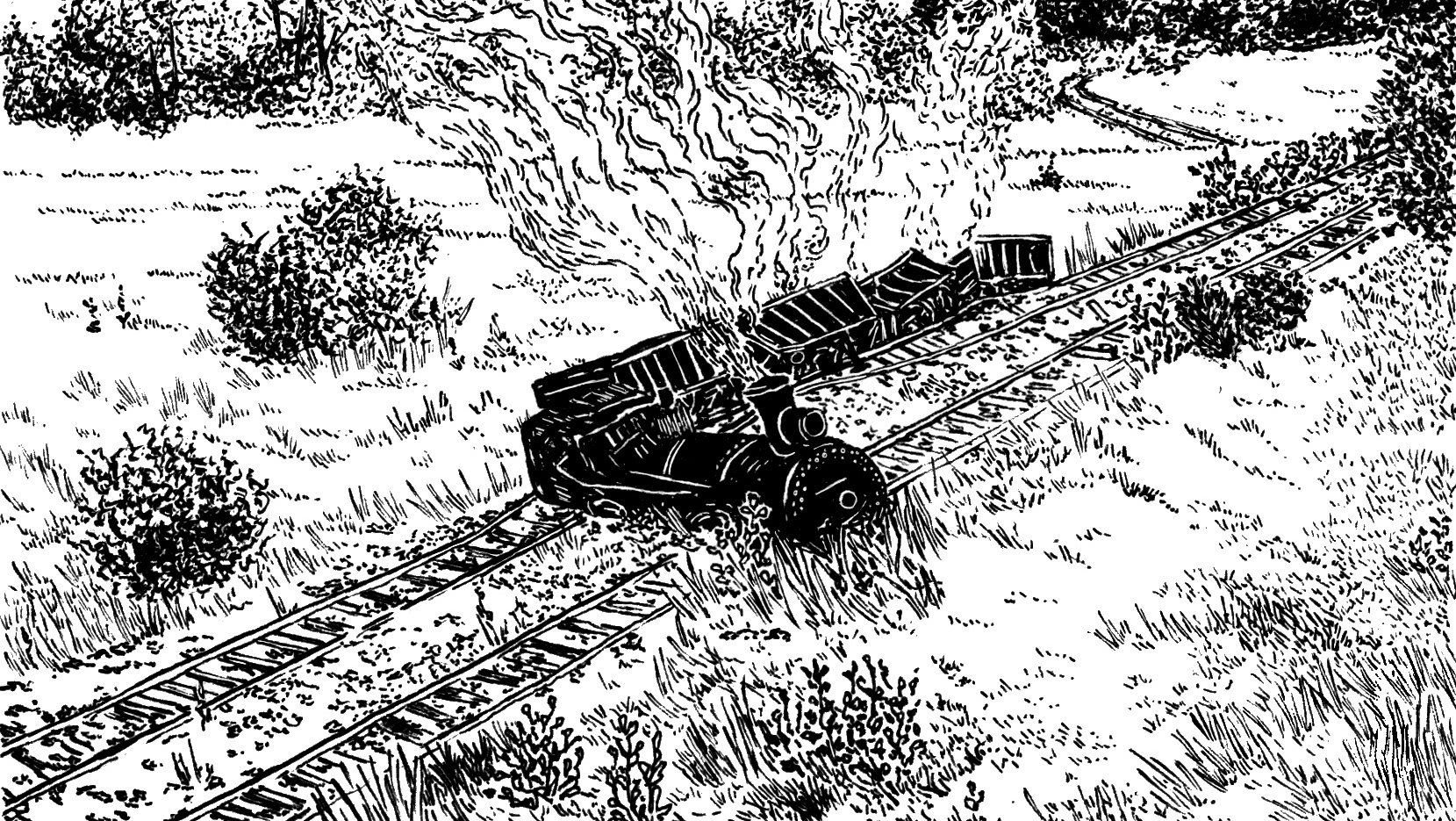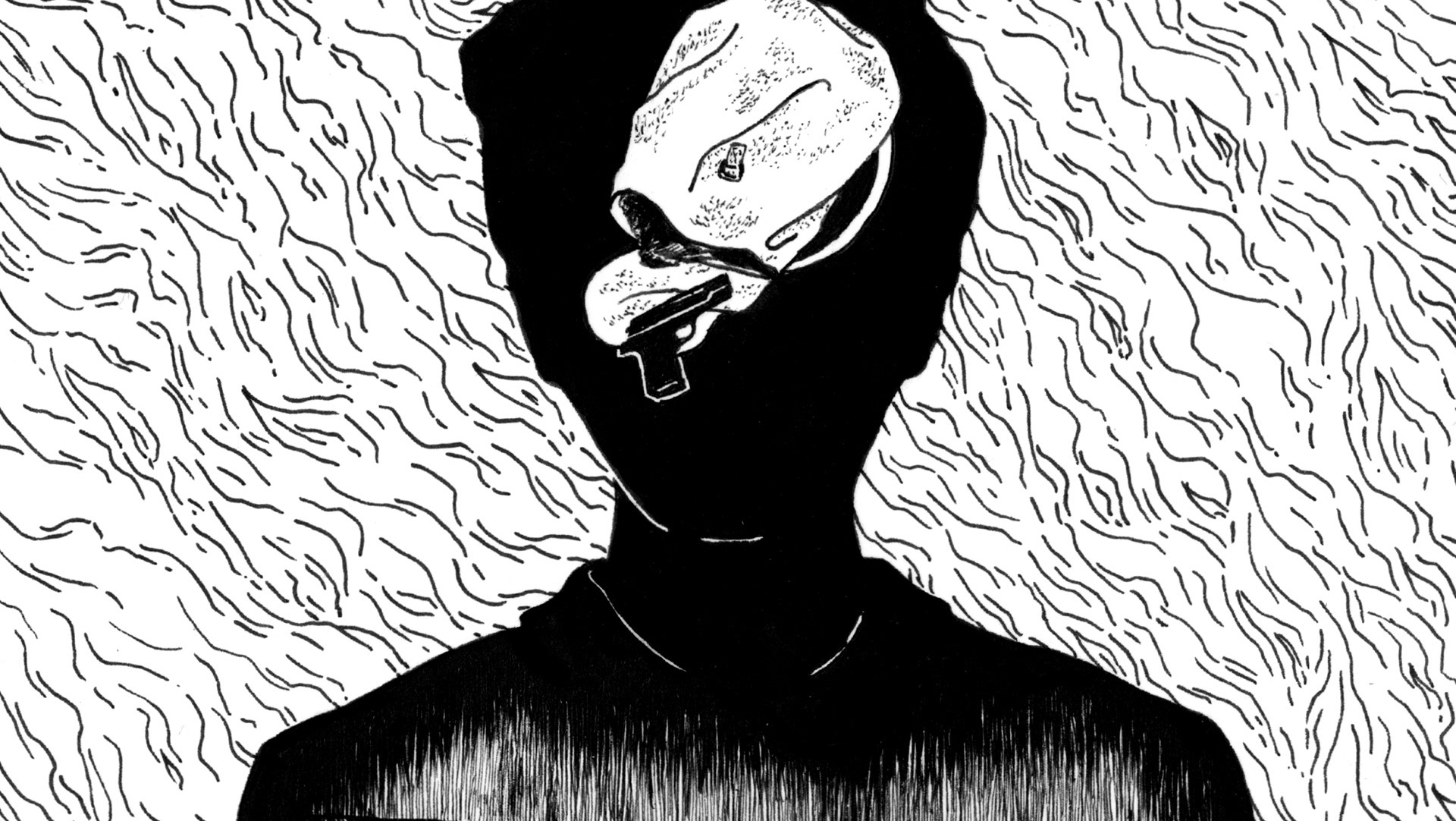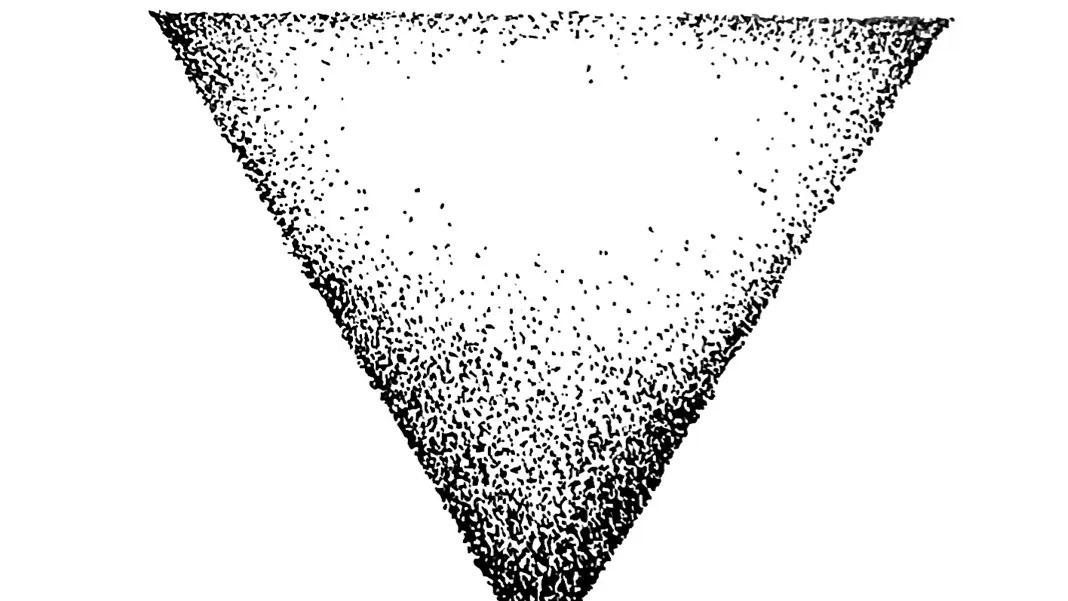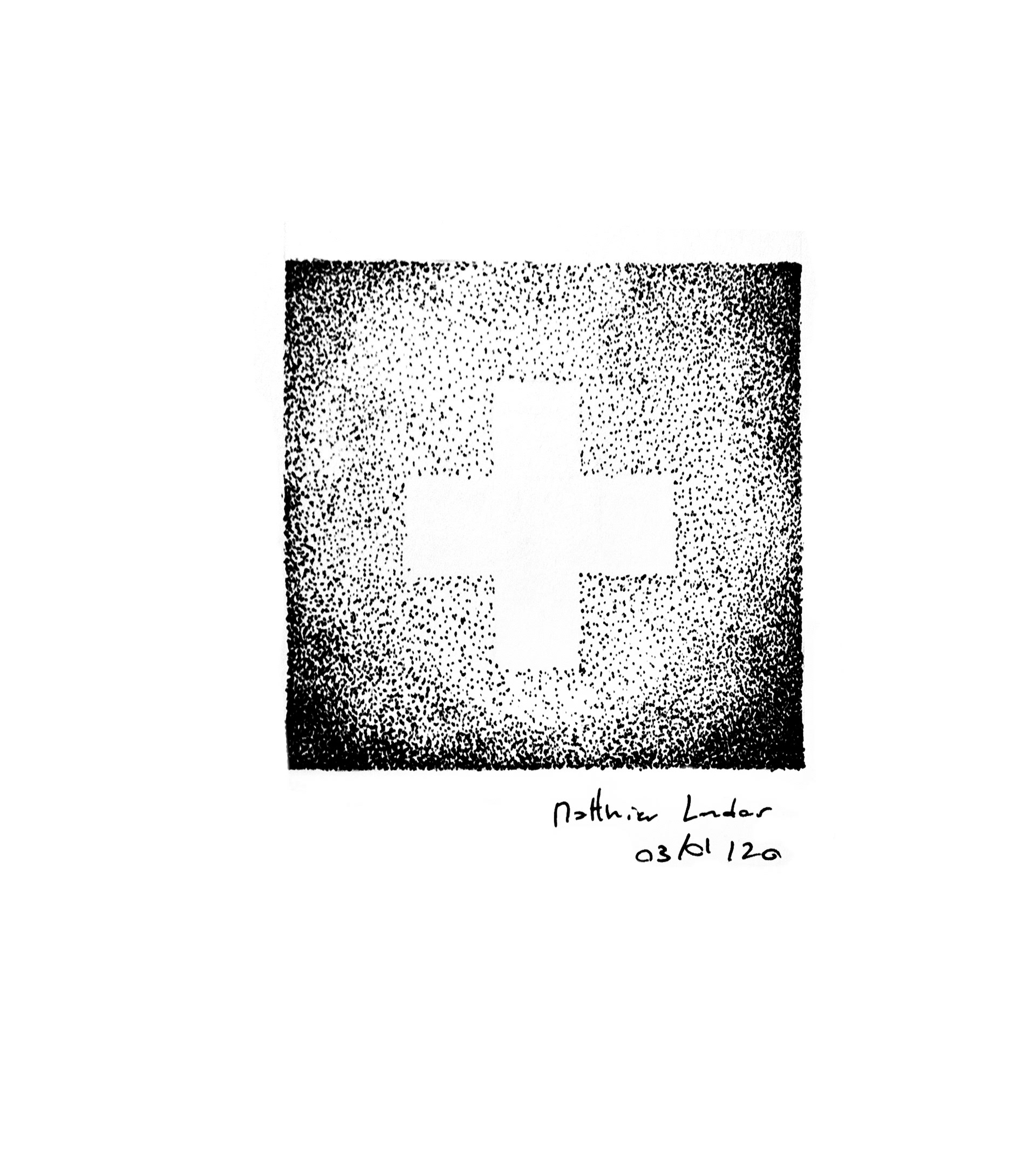
the cross
Today is a day in March 1943, and Marcelle doesn't understand. How can such a place exist? How can anyone allow it? This is impossible, the Geneva convention must have made such a place impossible. Why isn't the Geneva convention respected?
Back in 1940, Marcelle was in Sweden. She was part of the french army, on a mission, as a nurse, to cut the german army from getting any iron in Sweden. The mission was a partial success, but France lost the war quickly afterwards. It wouldn't be such a problem to Marcelle, as her father was Norwegian and lived in Oslo, she could have easily stayed there. But Marcelle loved France, she had a feeling there would still be a fight there, the country needed her help.
So she decided to go back. Her travel was a tough one, through countries at war, desperate, dangerous, confused, yet she made it to the North of France, around Charleville, with one goal in mind, help her country, treat it, take care of it. For 2 years, this is what she did, caring, protecting, helping, as a nurse.
She also wanted to help those who couldn't necessarily go to a hospital so she joined a network helping french and british soldiers join Switzerland, a neutral country. From Switzerland, they could join the Allies and keep up the fight. The network gave them shelters, new clothes, new ids, places, ways to pass incognito the french swiss border.
The police was on a lead, they attempted to infiltrate the network by passing one of their officers for a british soldier. When he arrived in Charleville, he found the network easily, yet there was suspicion. Marcelle spoke english fluently so she interrogated the british soldier.
They spoke for a while, Marcelle tried to get as much information as she could but it wasn't easy to fact check anything he said. Marcelle trusted the man from the start anyway, this was in her nature, to her no one would do such a thing as denouncing them, it just wasn't possible. She was entirely wrong. 12 people were arrested, the whole network destroyed.
Marcelle kept on trusting people, she trusted that even in war some rules had to be respected. She told Marie-Claude Vaillant Couturier that, wherever they would be deported, they shouldn't accept to work. The Geneva convention would protect them. As prisoners, the convention gave them rights, protected them. Shelter and food had to be provided, basic human rights. In the Romainville camp, there was a lot to complain about, the Geneva convention was barely respected. But Marcelle was confident that the next camp would respect those rules more.
Back in the present, Marcelle is confused, she can't make any sense of where she is. She is forced to work, there is barely any food, water, hygiene, space to sleep, nothing. She complained to a guard, she was laughed at. The second time she complained, she was beaten up.
Marcelle has been betrayed, she has been beaten, she has lost her faith, her hope, Marcelle gives up and joins the Revier. She meets Marie Jeanne Bauer, another 31000, she tells her that life bears no meaning anymore. Marie Jeanne disagrees. If there is a moment to believe, to stay hopeful, it is now, in such a place.
It is too late for Marcelle.
Notes
Thank you for listening to this episode of 31000/45000, the story of 2 trains of french members of the resistance. My name is Matthieu Landour Engel.
This episode was about Marcelle Fuglesang.
Here are a few more informations about the Geneva convention mentioned in this episode. The Geneva convention is a text relative to the treatment of prisoners of war. there are 4 conventions, the first one was signed in geneva on the 22nd of august 1864, and follows closely the creation of the Red Cross, in Switzerland, in 1863. Other conventions were signed in 1929 and 1949. The 1929 convention in particular was supposed to cover the treatment of prisoners of wars, giving detailed rules on hygiene, food, discipline, organisation of camps, … Most countries signed those conventions, and the Geneva convention was entirely ignored in nazi camps such as Auschwitz-Birkenau. Extermination camps were pretty much the opposite of what the Geneva convention stood for.
It gives me an opportunity to roughly mention what happened in Norway, Sweden and Switzerland during the Second World War.
Switzerland remained neutral during the Second World War. Germany considered invading the country but, a solid military defense mixed with good fortune made the invasion impractical and unnecessary. Switzerland's press was vehemently anti Third Reich, yet the country became an important mediation country between the Axis and Allies forces, as well as an important espionnage hub. The country was blockaded by both the Axis and the Allies, it also interned more than 300000 refugees, including european jewish escaping persecutions, it also stored a consequent amount of foreign wealth, some of it was wealth stolen from holocaust victims from eastern Europe. Switzerland had a controversial role during the Second World War yet didn’t collaborate with the Nazis like some countries, like France, did.
Sweden also had an official neutral position during the Second World War, neither on the Axis nor the Allies side. In 1943, the danish jewish population was allowed refuge in Sweden, so were the finnish and norwegian jewish, although in smaller numbers. But this is also controversial, given that the refuge of the european jewish population was rarely granted before 1943. Anyway, Sweden's neutrality is controversial, as on one side, the country kept commercials trades with the Third Reich, and at the same time, aided the Allies through espionage and military supplies.
Norway also had an official neutral position yet Germany invaded the country on the 9th of April 1940. 2 months of battle followed, yet norway surrendered on the 10th of June 1940, after the british forces ended their support. The norwegian government fled the country to London while a collaborationist government was put in place, under german control. For the entire duration of the war, both the king of Norway and the norwegian government in London sent messages to the citizen of norway, supporting military actions against the german. So Norway was in a different situation that France was.
I have been trying to find Marcelle Fuglesang’s relatives, unfortunately, my research was unsuccessful. If by any chance, you know of someone related to her please let me know, I would be very pleased to get in touch and make sure the text I wrote doesn’t contain any errors.
My sources for this story are mostly coming from the book le convoi du 24 janvier by Charlotte Delbo, A train in winter by Caroline Moorehead. My sources also are red triangles in Auschwitz, by Claudine Cardon Hamet, the website deportes-politiques-auschwitz.fr, memoire vive and the foundation for the memory of deportation website, the Red Cross website and the fantastic website auschwitz.org .
Thank you very much for listening, the next episode will be about Henriette Schmidt and treason among the communists.
TRADUCTION FRANCAISE
Aujourd’hui, un jour de mars 1943, Marcelle Fuglesang ne comprend toujours pas comment un tel endroit peut-il exister? C’est impossible, personne ne peut avoir donné l’autorisation de construire cet enfer. La Convention de Genève ne laisserait jamais un tel lieu perdurer? Comment est-il possible que la Convention de Genève ne soit pas respectée?
Des années plus tôt, en 1940, Marcelle était en Suède.Elle faisait partie de l'armée française, en mission comme infirmière, avec l’objectif de couper l'armée allemande de tout apport de fer en Suède. La mission était un quasi- succès, mais la France perdait la guerre contre l’Allemagne peu de temps après. Rester en Suède n'était pas vraiment un problème pour Marcelle, elle était d’origine norvégienne, et son père vivait à Oslo, ça n'était pas si loin. Mais Marcelle aimait la France, elle voulait poursuivre le combat, le pays avait besoin de son aide.
Alors elle rentrait. Elle traversait plusieurs pays en guerre, dans des conditions difficiles, dangereuses, et enfin elle atteignait le nord de la France, vers Charleville. Elle avait une idée en tête, protéger les siens et elle commençait par son travail d'infirmière, pendant 2 ans.
Elle voulait aussi aider ceux qui ne pouvaient aller à l'hôpital, ceux qui avaient besoin de discrétion. Alors elle rejoignait un réseau qui s’occupait de traiter des soldats français et britanniques, et qui s’arrangeait pour les emmener en Suisse, en territoire neutre. Le réseau offrait un toit, des vêtements, de nouveaux papiers d'identité, et un chemin sécurisé pour atteindre la Suisse.
La police aussi finissait par entendre parler de ce réseau, elle essayait alors de l'infiltrer en faisant passer l’un des leurs pour un soldat britannique. Quand il arrivait à Charleville, il contactait le réseau aisément, mais il s’agissait de les convaincre. Alors les membres du réseau faisaient appel à Marcelle, elle parlait bien anglais, elle allait interroger l’homme.
Ils parlaient tous les deux, Marcelle posait des questions, elle essayait de soutirer le plus d’informations possibles, mais comment vérifier ces dires? Il ne restait qu'à savoir si Marcelle pouvait lui faire confiance, elle s’était laissée convaincre depuis le début. Marcelle avait naturellement confiance, elle ne pouvait pas imaginer qu’un homme puisse aller aussi loin que mentir a des gens pour les arrêter, des gens dont la cause est noble comme la sienne. Marcelle avait tort, largement tort, l’homme était accueilli, et très vite le réseau était détruit, de l'intérieur, 12 personnes étaient arrêtées.
La confiance en Marcelle subsistait encore, on ne se débarrasse pas de l'optimisme aussi facilement. Dans le train qui les emmenait pour Auschwitz-Birkenau, Marcelle disait à Marie-Claude Vaillant-Couturier que où qu’elles aillent, elles n’avaient pas à accepter de travailler. La convention de Genève les protégerait, elles avaient des droits. La convention leur donnerait accès à un toit, de la nourriture, un minimum de droits. A Romainville, la convention était à peine respectée, mais Marcelle avait confiance, elle était convaincue que le prochain camp serait meilleur, plus décent, plus en accord avec la loi internationale. Une fois de plus, elle avait tort, largement tort.
De retour au présent, Marcelle est si confuse, elle ne parvient pas à donner sens à ce qui lui arrive. Elle est forcée de travailler, elle mange a peine, boit si peu, l'hygiène est inexistante, le sommeil turbulent, rien n’a de sens. La première fois qu'elle s'était plainte aux gardes femmes, et qu'elle avait évoqué la convention de Genève, on lui avait ri au nez. La deuxième fois, on l’avait battu.
Marcelle a été trahie par l'humanité, elle a été battue, elle a perdu sa foi, puis l’espoir qu’il lui restait, maintenant elle va au revier. Elle trouve Marie-Jeanne Bauer, une autre 31000, elles ne se sont pas vues depuis quelques temps. Marie-Jeanne et Marcelle sont toutes les deux infirmières, mais ici Marcelle vient en patiente. Elle a perdu son optimisme pour de bon, elle chuchote à Marie-Jeanne que la vie n’a plus de sens, qu’il n'y a plus d'espoir. Marie-Jeanne lui répond que c’est faux. S’il y a un moment pour garder espoir, c’est bien maintenant, ici, dans un endroit pareil.
Il est trop tard pour Marcelle.
Notes
Thank you for listening to this episode of 31000/45000, the story of 2 trains of french members of the resistance. My name is Matthieu Landour Engel.
This episode was about Marcelle Fuglesang.
Here are a few more informations about the Geneva convention mentioned in this episode. The Geneva convention is a text relative to the treatment of prisoners of war. there are 4 conventions, the first one was signed in geneva on the 22nd of august 1864, and follows closely the creation of the Red Cross, in Switzerland, in 1863. Other conventions were signed in 1929 and 1949. The 1929 convention in particular was supposed to cover the treatment of prisoners of wars, giving detailed rules on hygiene, food, discipline, organisation of camps, … Most countries signed those conventions, and the Geneva convention was entirely ignored in nazi camps such as Auschwitz-Birkenau. Extermination camps were pretty much the opposite of what the Geneva convention stood for.
It gives me an opportunity to roughly mention what happened in Norway, Sweden and Switzerland during the Second World War.
Switzerland remained neutral during the Second World War. Germany considered invading the country but, a solid military defense mixed with good fortune made the invasion impractical and unnecessary. Switzerland's press was vehemently anti Third Reich, yet the country became an important mediation country between the Axis and Allies forces, as well as an important espionnage hub. The country was blockaded by both the Axis and the Allies, it also interned more than 300000 refugees, including european jewish escaping persecutions, it also stored a consequent amount of foreign wealth, some of it was wealth stolen from holocaust victims from eastern Europe. Switzerland had a controversial role during the Second World War yet didn’t collaborate with the Nazis like some countries, like France, did.
Sweden also had an official neutral position during the Second World War, neither on the Axis nor the Allies side. In 1943, the danish jewish population was allowed refuge in Sweden, so were the finnish and norwegian jewish, although in smaller numbers. But this is also controversial, given that the refuge of the european jewish population was rarely granted before 1943. Anyway, Sweden's neutrality is controversial, as on one side, the country kept commercials trades with the Third Reich, and at the same time, aided the Allies through espionage and military supplies.
Norway also had an official neutral position yet Germany invaded the country on the 9th of April 1940. 2 months of battle followed, yet norway surrendered on the 10th of June 1940, after the british forces ended their support. The norwegian government fled the country to London while a collaborationist government was put in place, under german control. For the entire duration of the war, both the king of Norway and the norwegian government in London sent messages to the citizen of norway, supporting military actions against the german. So Norway was in a different situation that France was.
My sources for this story are mostly coming from the book le convoi du 24 janvier by Charlotte Delbo, A train in winter by Caroline Moorehead. My sources also are red triangles in Auschwitz, by Claudine Cardon Hamet, the website deportes-politiques-auschwitz.fr, memoire vive and the foundation for the memory of deportation website, the Red Cross website and the fantastic website auschwitz.org .
Thank you very much for listening, the next episode will be about Henriette Schmidt and treason among the communists.
